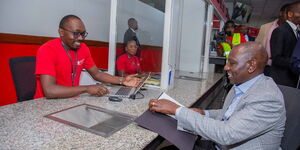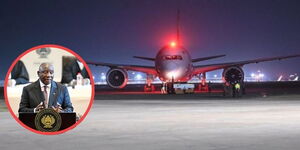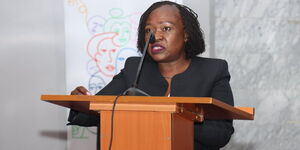Kenya has set up two new facilities in readiness to test for the Novel Coronavirus.
Until Tuesday, February 11, all samples obtained from individuals suspected to carry the virus were sent to South Africa.
Acting Director-General of Health Patrick Amoth revealed on Tuesday, February 12, that laboratories under the National Influenza Centre, hosted at the National Public Health Laboratories and Kenya Medical Research Institute (Kemri), will begin testing samples immediately.
During an interview with the Daily Nation on Wednesday, Amoth said that the kits were well received on Sunday and testing for the new coronavirus would begin.
He also added that equipping the laboratories also meant that the country would not need to send out samples for confirmation as the two labs could compare their results.
At the moment up to 45,171 cases of the virus have been confirmed with the death toll worldwide surpassing 1,000 people.
The World Health Organization declared the virus a global health emergency as experts race against time to contain it.
The virus has resulted in China imposing a lockdown of the country's borders and leading to a cancellation of flights in and out of the country. The latest addition was China Southern Airlines' decision to halt direct flights to Kenya on February 10.
In response to the coronavirus outbreak, there has been a rush to establish diagnostic capabilities in different countries, particularly in developing countries.
Dr Ahmed Kalebi, pathologist and CEO of Lancet Kenya said testing for the pathogen is a complex affair, saying testing kits have to be newly developed and confirmed to be operational.
With the new kits now available, testing is now expected to take 24 hours.
A week ago, only two laboratories in Africa, namely South Africa and Senegal, could diagnose the virus. As of Sunday, WHO expected every African country to be able to diagnose the virus.












